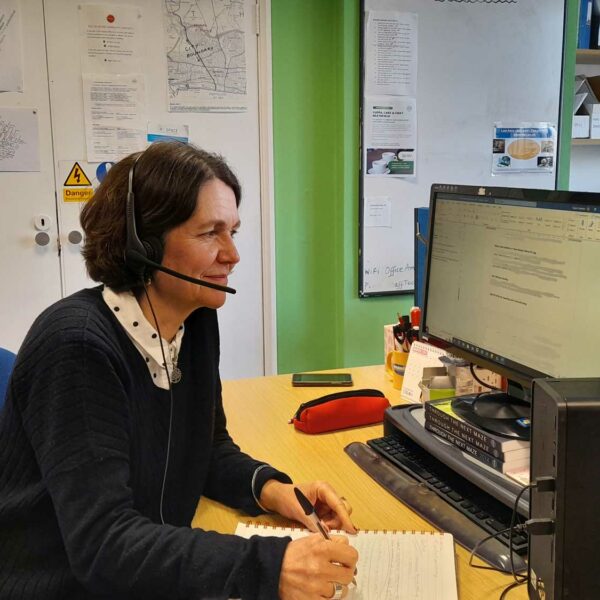Suspensions and exclusions
Children and young people with special educational needs and disabilities (SEND) are more at risk of being excluded from school than children without additional needs.
What is an exclusion?
The law says an exclusion happens when a child is sent home from school for a disciplinary reason. There are two types of exclusion:
- suspension (also called a ‘fixed-term exclusion’), is when a child is excluded for a limited period such as a day or a week
- permanent exclusion is when the child is not allowed to return to the school at all.
If a school suspends or excludes a child it must follow the government guidance on suspension and permanent exclusion to ensure that the process is fair and lawful.
This page will look at the law around exclusions and how schools must consider your child’s SEND as part of their decision-making. The law and guidance applies to mainstream and special schools that are maintained by Local Authorities, to academies and to Pupil Referral Units (PRUs). If your child is at a non-maintained or independent school or in Further Education (FE), go to the final section of this page for advice.
The first step is always to speak to a professional who can help.
When is it NOT an exclusion?
We hear from many parents whose children are sent home early because they are ‘dysregulated’ or told that they can only come to school for part of the day or week. Sometimes, parents are encouraged to take their child off the school roll and home educate when they don’t want to do this. All of these are examples of informal exclusions, which are unlawful. See the section on informal exclusions.
The process for exclusions
Exclusions can only happen for disciplinary reasons. A school cannot exclude a child for any other reason, including unmet special educational needs.
Each school must have a behaviour policy that sets out the school rules, how they will respond if pupils break the rules (for example with detentions or other disciplinary measures), and when this might result in exclusion. Some exclusions are triggered following several incidents of persistent disruptive behaviour, while others happen after a serious one-off event. Whatever the reason, exclusions must be lawful, reasonable and fair.
Schools are expected to consider a child’s SEND before deciding to exclude them. Exclusion of a disabled child may be disability discrimination if the exclusion was because of the child’s disability or because of something that happened because of the disability, for example a school policy which is discriminatory to disabled children. Read our page on Rights, voice and decision making for more on disability discrimination. If you think this could be the case, you may want to get advice from SENDIASS. You could also read IPSEA’s guide to disability discrimination.
Only a headteacher has the authority to exclude a child. The way things work and what must happen varies according to the length of the exclusion and the total number of days excluded in that term and school year. We summarise it here, so you may find it useful to watch at our SENDIASS video on exclusions for more detailed information. We also recommend IPSEA’s information on the steps the school has to take.
When a child or young person is excluded, the headteacher must tell the parents why and how long it is for. This must be done without delay, by phone or in person. They must follow up in writing with this information, explaining your right to make representations about the exclusion and how this can be done. The school must also tell the local authority (LA) and, other than for very short exclusions, the school governors.
During the first five days of any exclusion, you must make sure your child is not in a public place during school hours without reasonable justification, or you may receive a fixed penalty notice. The school should set and mark work your child can do at home.
For exclusions over five days, the school must arrange alternative education for your child from the sixth day. This must be suitable for your child’s SEND. For a permanent exclusion, it is the LA that must provide the suitable, alternative education from day six – sooner if possible.
The governors must meet to discuss the exclusion if:
- it is a permanent exclusion, or
- the child has been excluded for more than 15 days in one term, or
- the exclusion will mean the child missing an external exam, or
- the child has been excluded for between 5 and 16 days but the parents request a meeting with the governors
Schools can only exclude a child for 45 days in total over one year. If the 45-day limit is reached the school can only issue a permanent exclusion. A permanent exclusion is only for a serious breach or persistent breaches of the school’s behaviour policy AND where allowing the child to stay in school may cause serious harm to the education of welfare of anyone in the school.
Responding to an exclusion
Whatever the circumstances, if your child is excluded they will need your support. It’s helpful to try to stay calm and focus on listening so you can get a clear picture of what has happened and understand your child’s and the school’s point of view. It is advisable to try to avoid being cross as a heated discussion may lead to something being said that is difficult to move on from afterwards.
- you may want to object to the exclusion
- you may want to ask the school to consider alternatives to exclusion for the future
- you may well want the school to look again at your child’s special educational needs and the help they get.
Objecting to an exclusion
If there is a governor’s meeting, you have the option for an online or face-to-face meeting. You can also take someone with you to represent or support you.
If it is a permanent exclusion and the governors decide not to overturn it after this meeting, you can ask for an independent review panel to look at it. They can recommend that the governors reconsider their decision. As a parent you can ask for an SEN expert to attend the review meeting and advise the panel.
Alternative approaches
If you feel that the school could have avoided the exclusion by taking a different approach you should raise this. For example, you may feel that a situation escalated because staff were not adjusting how they handled your child to take into account of their additional needs or disabilities.
Think about how you phrase this – it can be helpful to talk about what has worked well in the past or in other situations. Ask if all staff who work with your child are aware of their needs. Ask the school to think about adjustments that can be made that allow the school to keep good order in the school but reduce the chance of your child getting into trouble or missing education. You could also ask about alternative sanctions that could be used to help your child learn expected behaviour without excluding them.
Getting more support for your child's SEND
SEN Support fact sheet (pdf 950kb)
Video workshop: Getting the right SEN support in school or college.
If they’re already getting SEN Support, you should ask for this to be reviewed. Would more, or different, help avoid exclusion in future? Check whether they have asked for help from the LA’s specialist teams that work with schools to support inclusion and behaviour, as they can advise on strategies for pupils who are struggling.
One outcome of this might be you or the school deciding it is time to get more external advice, to refer them for a different assessment of their needs, or perhaps request assessment for an Education Health and Care (EHC) plan.
If your child already has an EHC plan you should check that they are getting all the provision specified in the plan. If not, raise this with the school and your Casework Officer/Assessment and Planning Officer at the local authority. If they are getting the help set out in their plan and still getting excluded, the plan may need to be looked at again. Ask for an early Annual Review to look at amending the plan and, if necessary, changing the placement. If your child has been permanently excluded this will be essential, as a new placement will have to be named in the EHC plan.
See Amaze’s resources on Annual Reviews:
EHC needs assessments and plans (scroll down to ‘Annual reviews for children with an EHC plan’)
Video workshop: Annual reviews of EHC plans
Make sure you are looking after yourself and your child through this. This is a stressful thing to deal with for everyone, even if on the surface your child is glad of a break from school.
Informal exclusions and part-time timetables
Children should be in school full time every day unless they have been formally suspended or excluded, or there is an agreed time-limited plan for part-time attendance. Sending a child home early, asking for them to be brought in late, or taken home at lunchtime or not letting them attend for activities are all unlawful exclusions, even if you agree as the parent.
For children with SEND it is important that difficulties with including a child in school full-time are recorded properly, as this may be evidence that they need more, or different, support in school, or even a different placement. If your child’s school contacts you during the school day and asks you to collect them, you should ask if it is a formal exclusion. Even if you decide to go along with the request (you are not obliged to) you should ask for a follow-up discussion, and a look at what can be done to prevent this happening again.
Sometimes there are reasons why a part-time timetable may be helpful to a child as a short-term measure. For example, it may be a way to maintain a link with school during a period of ill-health or to settle them back into school after an absence. There should be a clear time-limited plan for this, with an agreed end-date. If your child’s school suggests a part-time arrangement, ask if they are following the statutory guidance on school attendance and local guidelines on how to use a part-time timetable legally and constructively.
See Amaze’s video on part-time timetables and exclusions.
Directing pupils off-site
Maintained schools have the power to direct a child ‘off-site’ for education to improve their behaviour. Most academies have similar powers if their Articles of Association are written to include them. Directing a pupil off-site is not an exclusion and there are rules about when and how a school can do this. It is not meant to be used as a sanction or punishment and should aim to help future behaviour.
As with exclusions, there are rules and good practice guidelines about when and how they can do this. The school should tell you in writing at least two days before the move is made, giving the following information:
- the address where your child will get their off-site education
- who your child has to report to when they arrive
- the number of days they will be directed off-site
- what the purpose is; the objectives for your child
- session start and finish times.
If they have an EHC plan the LA must be told, too. The off-site education must be reviewed regularly, including looking at how your child’s SEND needs are being met, and the LA involved in this review if they have an EHC plan. They should still get the provision specified in the plan. If not, ask for an early Annual Review.
Other types of school and FE colleges
Independent schools, non-maintained special schools, further education (FE) colleges and sixth form colleges are not covered by the law and guidance we have explained above. They have their own behaviour and exclusion policies. You should find out what these are for your child’s school or college. They must follow their own policies and must make sure they are not discriminatory.
As with exclusions in maintained schools and academies, suspension or exclusion can be a sign that you and the school or college need to look again at your child’s special educational needs and how these are being met. For children without an EHC plan it may be time to ask for an EHC needs assessment.
If your child has an EHC plan, check whether they are receiving all the provision that’s specified. If not, you should contact your Casework Officer/Assessment and Planning Officer at the LA. If they are getting all of the help set out in their plan and are still getting excluded, you should ask for an early annual review so the plan can be looked at again.
Speak to an adviser
Our SENDIASS service can offer advice on anything to do with education and your child’s SEND. If you would like to get individual advice, contact the advice team.






